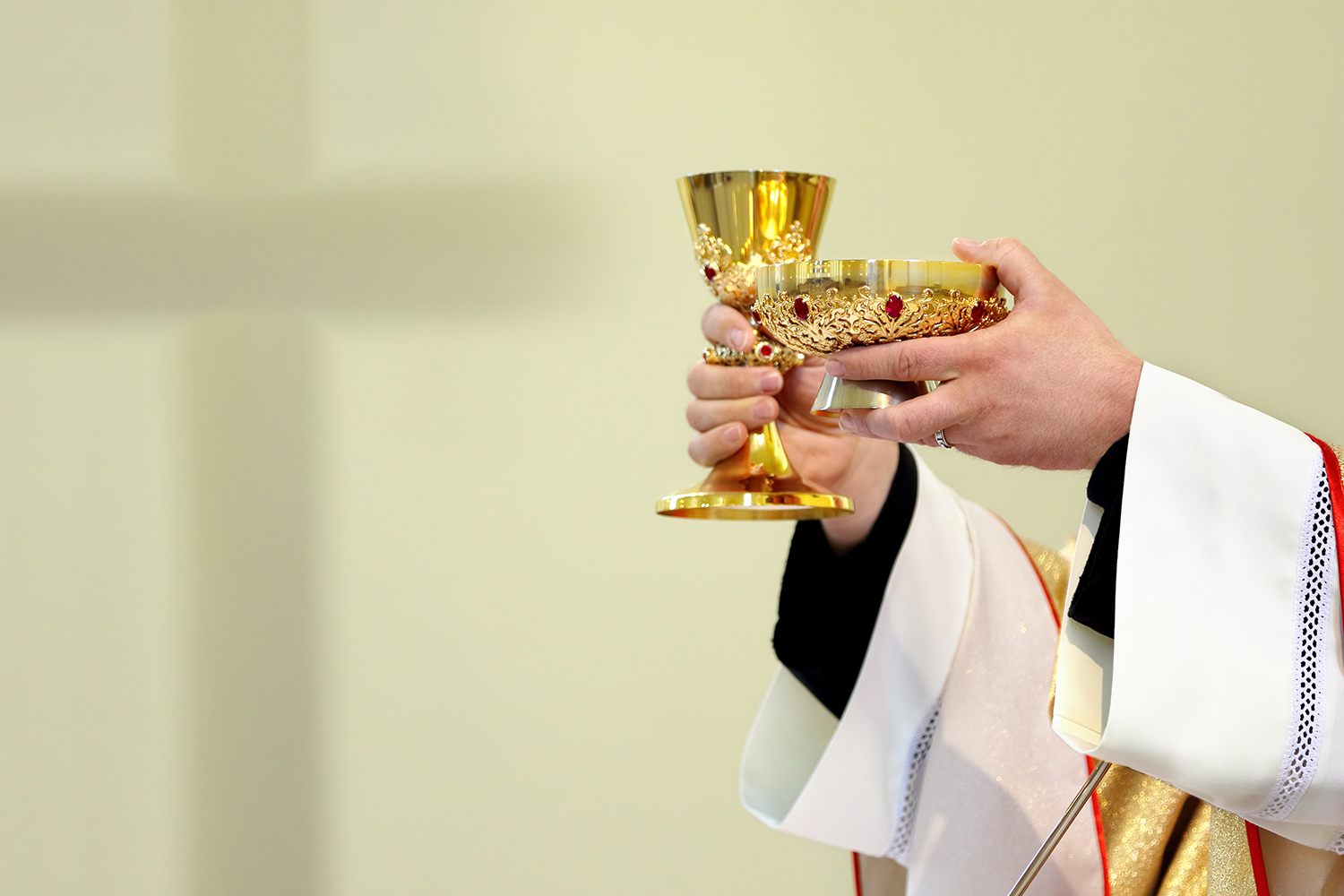One of the words my 19-month-old son has latched onto at Mass within recent weeks is “body.” He first hears it at the consecration, then repeats it rapidly during much of the remainder of the Eucharistic prayer. This past week, though, as we walked to the car after Mass, he was saying it on repeat, intermingled with the name of Jesus.
It seems to me, by God’s grace, my toddler has latched onto what might be the two most important words that eventually will help him begin to understand the Eucharistic mystery. Let me explain.
In many ways, those two words encompass our Eucharistic doctrine in a nutshell. We gather in Jesus’ name, at his command, to remember his passion, death and resurrection — the Paschal Mystery — and to become one with him when we receive his body.
It’s a core belief of Catholic faith, but it’s often one of the most misunderstood. The bread and wine that are consecrated become Christ’s body and blood. It’s not something figurative or symbolic. The bread and wine really are changed into Jesus himself. Saints and martyrs have lived, and even died, defending this truth.
The Church uses philosophy to explain the change, teaching that things are made up of “substance” and “accidents.” “Substance” is a thing in its essence, and “accidents” are what we can sense to describe the thing. As an example, consider a desk. Desks come in all different shapes, sizes and colors. They are made of different materials and for different purposes. But there is something universal about a desk that makes it a desk, something we can call, as funny as it sounds, “deskness.” Along those lines, then, a desk cannot, for example, be a car. Or an envelope cannot be a pen, etc.
With the bread and wine that are changed into Jesus at Mass, the accidents — all the characteristics that manifest the thing to our senses, like the texture of the bread and the taste of the wine — remain the same. They are not changed. What is changed is the substance. The “breadness” and the “wineness” are changed into Jesus himself, into his very body, by the power of God. God enables the Church to “make” the Eucharist.
The ripples of transformation that come from this work of the Holy Spirit are boundless. Not only are the bread and wine changed, but we can be, too. We are members of Jesus’ body from baptism, and we renew and strengthen this bond each time we receive the Eucharist. This affects not only our relationship with Jesus, but with our fellow brothers and sisters in Christ. The Eucharist makes the Church.
Our belief in the Real Presence best can be shared with our children when we live and teach these realities. For the Faith to take root in our children’s hearts and minds, we must live as we believe and practice as we teach.
I’d like to think that these seeds are being planted in my son’s mind when he latches on to the words “Jesus” and “body” at Mass. But I know that hearing and speaking the words are just the beginning. It’s my job as a parent to help him understand the real presence of Jesus in the Eucharist by how I live and act. What a responsibility, but what a gift.



